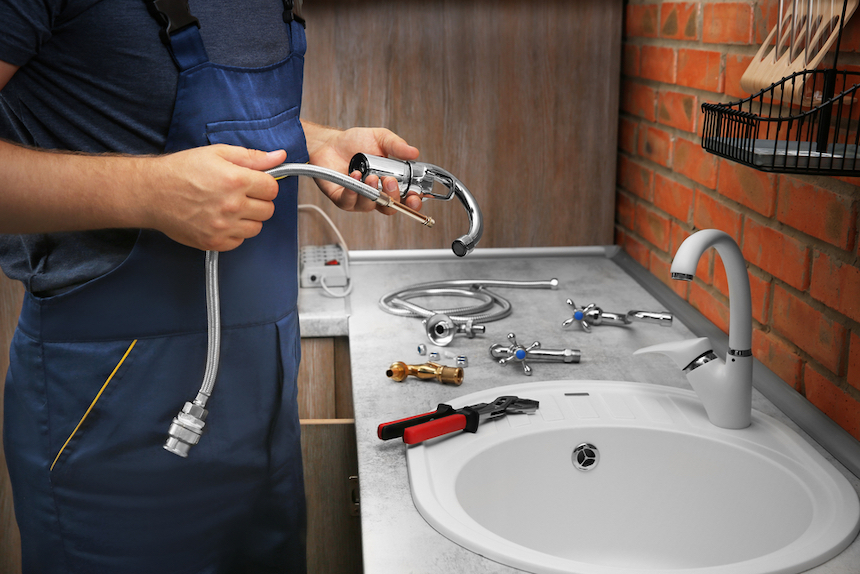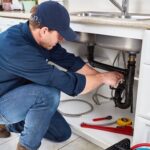
The plumbing system is one of the most important components of any home. If your plumbing system malfunctions, it could cause many disruptions to the functioning of your home. It can even put you and your family in harm’s way. You will want to know how to handle certain problems and who to call if you can’t handle them. Here are a few important pieces of information that you should know about your home’s plumbing so that you’ll be able to maintain your system better and hopefully avoid certain problems.
Shutoff Valve Locations
You’ll want to know where the shutoff valves for pipes and plumbing fixtures are located so that you can stop the water flow if you ever encounter a plumbing emergency. The main shutoff valve, which will stop all water flow into your home, is likely located in your home’s basement or crawlspace or next to your water heater or kitchen sink. The main shutoff valve might also be found outside your home near your property line. To turn off the water for just a faucet, look for the valve below the sink.
Leaks May Go Unnoticed
Plumbing leaks aren’t always obvious, and failing to address any leaks quickly could result in home damage and other dangers. Pipes that leak inside walls could cause structural materials of your home to decay, which may result in high repair costs. Any leaks in your plumbing system could also cause mold and mildew that may trigger allergic reactions to grow. Leaks that go unnoticed could even pose harm to your home’s electrical system and cause electrical fires. A qualified plumber can be hired to inspect your plumbing system to check for any leaks and perform any needed repairs.
How to Change the Water Temperature
The water in your home may be too hot or cold for your liking, and changing the water temperature can solve the problem. Water that runs too hot may scald the skin and cause burn wounds. If your water starts off running cold and takes a long time to warm up, adjusting the temperature can shorten the amount of time that you’ll need to run the water to get the desired temperature. To change the temperature, look for the dial on your water heater and twist it.
Whether or Not You Have Hard Water
Hard water, which contains excessive amounts of calcium, magnesium and other minerals, perhaps running through your pipes and into your home. The minerals in hard water could build up and leave deposits on the insides of your pipes, which may restrict water flow and cause pipe damage. Hard water can also cause your home appliances to work harder and wear them out faster. Experienced plumbing professionals know how to test homes for hard water and offer practical solutions.
Knowing these plumbing facts can make you a more informed homeowner. You’ll also be able to take faster action to resolve any plumbing problems if you know what to look for in your plumbing system.
- Choosing the Right Home Boiler for Your Water Usage - July 4, 2024
- How To Fit an AC Unit Into Your House Décor Plans - June 6, 2024
- A Few Tips To Help in Writing a Eulogy for a Loved One - May 13, 2024






